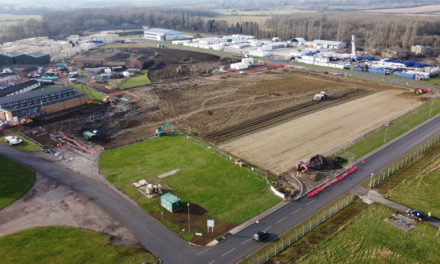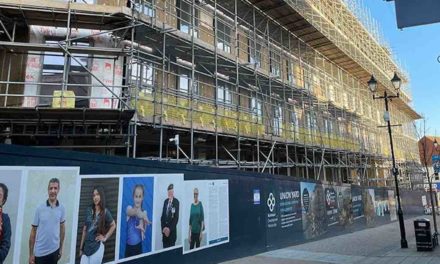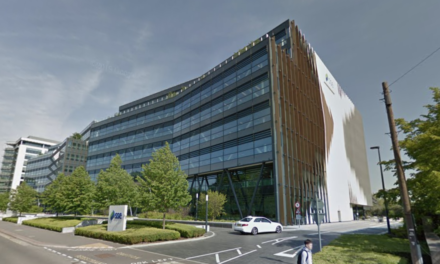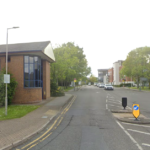Thames Tap partners have reported cautious optimism for the future along with positive effects from the Stamp Duty holiday.
We asked our varied team of Valley Voices their perceptions on the Government’s position on Covid-19 and how it affects the property industry and business in general.
Those in the residential property sector all reported a boost from the Stamp Duty holiday while others have adapted their offers to react to new opportunities.
Steve Woodford, managing director of Haslams estate agent in Reading, told us: “We’re grateful that the Government prioritised the property industry to be allowed to resume operation, after lockdown.
“Allowing sales to progress and providing the stimulus of the Stamp Duty holiday was, and still is, key to strengthening the economy.
“Within our industry, Government policies must tread a fine line. For example, protecting tenants from eviction may mean landlords lose the rental income they depend on, and, for those facing job uncertainty, support must be provided so that people can still move home and keep the market active.
“First time buyers are again facing the greatest challenge and it is crucial they receive more assistance to get onto the property ladder.”
Alexa Peters, head of residential development sales at Savills in Reading, said: “Values of prime UK regional property have topped their pre global financial crisis 2007 peak in the third quarter of the year, driven by record levels of demand from those reviewing their housing needs after the experience of lockdown.
“More space and a better work-life balance is a priority for buyers in Reading and the wider Thames Valley. With the prospect of more flexible working, there is strong demand for houses and apartments in more rural, yet still well-connected locations, and this area is well placed to meet that demand.
“The Stamp Duty holiday has given an undeniable boost to buyer commitment across most of the market. Competitive bidding has been reported by all Savills regional offices over the past few months, but the economic backdrop means the market remains finely balanced.”
Karen Jones, partner and head of planning & environmental law at law firm Blandy & Blandy, said: “The Stamp Duty holiday has, of course, artificially stimulated the residential property market and our team has seen year on year growth of at least 40 per cent as a result.
“Structurally, the commercial sector remains unchanged but activity levels in much of the market are certainly lower and deals are often progressing more slowly as confidence has dipped and caution has crept in.
“Any period of uncertainty does, however, create opportunities and that is why we expect to see things picking up over the course of the next 12 months.”
Renata Lovat Short, senior associate, real estate for law firm Clark Holt in Swindon, said: “Notwithstanding the Government’s latest Covid edicts, we are not seeing any restraint amongst our corporate and commercial clients to carrying on and transacting business as usual; in fact, we are seeing the reverse as there is a real sense of survival of the fittest going on.
“On the commercial real estate front, the picture is very mixed. We are seeing many lease re-gear transactions with tenants looking for increased flexibility but not necessarily rent reductions.
“Manufacturing and distribution-based businesses are still entering into new deals, but the activity of developer clients continues to be more muted for now.”
Maria Allaway, director of property communications consultancy DevComms, based in Thame, said: “Whilst the Government’s messaging could be clearer, the more localised approach to restrictions seems sensible and proportionate.
“Our developer clients continue to be active with everyone using adapted practices to work around the social distancing restrictions. There is also less sensitivity around engaging with councillors and communities than in the first wave with people generally wanting to move forwards.
“The rule of six has implications and we are again increasing the level of engagement online with clients using our digital consultation platform, Consult With You, as part of a wider strategy for engaging.
“We are also running and coaching clients on virtual stakeholder workshops so that good quality conversations with communities can continue.”
Kevin Lancaster, managing director for interior design specialist Mobius, which has its studio in Wokingham, said: “The recent government announcements are going to change the way we view the workplace.
“Many people, who were planning on coming back to the workplace in October/November will now continue to work from home as workers continue to have the choice about how and where they work.
“It will take several months for employers to create a solid strategy to move forward with their real estate.
In the meantime, the team here at Mobius are working hard to help clients repurpose their workplace in collaboration with their employees to ensure a safe return for all – whatever that may look like.”
Kate Dean, project director at Basingstoke & Deane Borough Council, who oversees Basing View, said: “Taking a long-term view is vital at times of economic uncertainty and at Basing View we are continuing to promote new pre-let opportunities to ensure the park is ready to meet future demand.
“We are also focusing on improving sustainable transport, particularly pedestrian and cycle links with the town centre and wider area, recognising the changes to travel to work behaviour created by the pandemic.
“It has been encouraging to see how businesses and workplaces at Basing View have adapted to meet Covid-19 secure guidelines and are well prepared for more people to return to the office, as Government guidance changes.
“We also see new opportunities created by the shift to more home working and believe Basingstoke is well placed to benefit from companies looking at both the hub and spoke model and facilities for employees to use flexible working or meeting space.”
Laura Fitzgerald, associate director at mode transport planning, based in Reading, said: “This year has taught us that, as an industry, we are a resilient group and we can adapt to new types of working and challenges.
“The ability to be present at meetings every day for various clients has, arguably, boosted many sites forward to planning application stage and conversely, the significant changes to the number and type of trips being made on the highway network has required new and innovative ways of thinking and assessing development impacts.
“All we know is that these new approaches will continue to benefit the property industry whatever lock-down/re-start/new normal the Government decides needs to happen.”
Image: By UK Prime Minister's Office – https://www.gov.uk/government/speeches/pm-statement-in-downing-street-27-april-2020, OGL 3, https://commons.wikimedia.org/w/index.php?curid=90402503
© Thames Tap No 228 (powered by ukpropertyforums.com).
Sign up to receive your free weekly Thames Tap Newsletter CLICK HERE



















Trackbacks/Pingbacks